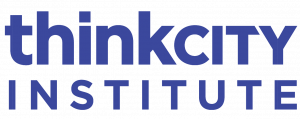HERITAGE ECONOMICS MASTERCLASS
Measuring the Impacts of Heritage Conservation
Overview
Increasingly heritage conservation is being identified as a significant model for cities and towns to help regenerate neighbourhoods and attract investment. This model goes beyond just dollars and cents, helping to build identity, improve liveability, and increase sustainability of the area. In this masterclass we take a closer look at the methodologies used to measure the Impacts of Heritage Conservation including metrics, characteristics of good data and impact calculation and analysis.
Consisting of three online sessions, this Masterclass includes assignments specifically curated to ensure participants have a comprehensive understanding of the topics and be able to apply the learnings into their own practice.
Session 1 – A discussion of metrics, methodologies, and possible data sources.
Session 2 – Each participant to identify a building or heritage district that would be their case study, one or two metrics that might be used, and the data source(s) identified.
Session 3 – Presentation from participants on what impact was measured, the data sources used, the methodology used, and the impact findings.
SCHEDULE
MEET YOUR INSTRUCTORS

Donovan Rypkema is the president of Heritage Strategies International and principal of PlaceEconomics. Working at the nexus of heritage conservation and economic development, Rypkema has undertaken assignments in more than 50 countries and 49 US states.
Clients of HSI have included the World Bank, the European Development Bank, the Inter-American Development Bank, the Council of Europe, and UNDP. Rypkema is a member of the Board of Directors of Global Urban Development, a member of the ICOMOS International Scientific Committee on the Economics of Conservation, a former member of the Senior Advisory Board of the Global Heritage Fund, and currently serves on the Real Estate Market Advisory Committee of the UN Economic Commission for Europe and the Advisory Board of Doh Eain, a Yangon-based NGO.
Rypkema holds a master’s degree in Historic Preservation from Columbia University. He teaches a graduate course in preservation economics at the University of Pennsylvania where he received the Perkins Award for Distinguished Teaching. In 2012 Rypkema received the Crowninshield Award from the National Trust, the highest preservation honour and awarded for lifetime contribution to historic preservation in the United States. In the same year, Rypkema was also a Visiting Fellow at the Centre for Liveable Cities at the URA in Singapore.

Rodney Swink, FASLA, PLA, is Senior Associate for Planning and Development at Heritage Strategies International. A licensed landscape architect, he is also a Professor of the Practice at North Carolina State University’s College of Design. From 1984-2008, Swink served as director of the North Carolina Main Street Program and Director of North Carolina Office of Urban Development. During his tenure he provided Main Street assistance via workshops, resource teams and training in fifteen states.
At Heritage Strategies International Swink has worked on projects in Saudi Arabia, and the United Arab Emirates, and represented the company at conferences and symposia in Europe, South America, Southeast Asia, and the Middle East.
Throughout his career, Swink has been a leader on numerous boards and commissions. He recently chaired the City of Raleigh (NC) Planning Commission, the Board of Directors for Preservation North Carolina and the Board of Advisors for the J.C. Raulston Arboretum. He also served as national president of the American Society of Landscape Architects and Chair of the ASLA Council of Fellows. He attended North Carolina State University and achieved both a Bachelor of Arts in Economics and a Master of Landscape Architecture with a concentration in community planning and urban economics.

Katlyn Cotton is the Director of Communications and Design at Heritage Strategies International. She is responsible for social media marketing and brand management, and she is the firm’s resident graphic design guru. Katlyn also contributes to data analysis, policy research, and writing in support of the firm’s economic impact studies, and incentives development.
One of the greatest challenges of research is dissemination – the findings of any study are only as useful as they are accessible and comprehensible. Katlyn explores new ways to present and share information, be that through eye-catching design, funky infographics, or videography. For her, data and spatial analysis are critical tools for the ethical development of cities, as they paint powerful images of the distribution of capital, community assets, and resources through space. She holds a master’s degree from the University of Pennsylvania Historic Preservation Program, where she focused on preservation policy and planning.
Katlyn has worked on HSI projects for clients in Abu Dubai, Saudi Arabia, Australia, and Canada, and on an upcoming workshop in Curaçao in conjunction with the Dutch Cultural Heritage Agency. She has represented the firm at conferences in the UAE, Malaysia, and Bermuda.

Alyssa Frystak is the Director of Research and Data Analytics at Heritage Strategies International. She is a graduate of the school of the Art Institute of Chicago Historic Preservation Program. A Chicago native, Alyssa’s interest lies at the intersection of heritage conservation, affordable housing, urban planning, and public policy and investigating ways in which these distinct, yet interconnected disciplines can be used to break down racial and socioeconomic barriers to preserve communities.
Alyssa holds a Bachelor of Arts in Architectural Studies, as well as a Graduate Certificate in Geospatial Analysis and Visualization from the University of Illinois at Chicago. She is also a member of the Skyline Council, Landmarks Illinois’ committee for young and emerging professionals. Before entering the field, she was a professional ballet dancer, working for both the Milwaukee Ballet and Saint Louis Ballet.
Her responsibilities at HSI are highly data driven as she has the primary responsibility at the firm for identifying data sources, establishing appropriate metrics, cleaning raw data, and analyzing the data so that underlying trends, patterns, and impacts can be reported.
WHO SHOULD APPLY FOR THIS CLASS?
Heritage practitioners who are looking to improve skills and knowledge about the economics of heritage in a practical manner will benefit most from this course.
- Local stewards at heritage sites
- Entrepreneurs involved in heritage projects
- Heritage managers and technical specialists in heritage-related institutions
- Technical specialists in other disciplines who are involved in heritage projects
The course has no educational prerequisites, but working experience in the heritage field will be valued. Professionals in other fields who are currently involved in heritage projects will also benefit from this course.
WHAT TO EXPECT?
This would be a somewhat technical training session. Various potential metrics for the impacts of heritage would be presented along with potential data sources and methodologies for measuring heritage impact.
LEARNING EXPERIENCE
Live Session (ONLINE)
Participants are required to join in all 3 live lectures conducted online. Sessions will be interactive and will help participants identify barriers to heritage investment in their city and proposing a set of tools – strategies, incentives, policies – to mitigate those barriers. At the end of the class, participants will receive feedback on your work from the facilitators and the organisers.
CLASS RESOURCES
Class Handbook
The class handbook will provide a guide to how the class will be organized. It will detail the session contents, schedule, assignments, and discussion topics for the class.
In addition, participants will be provided a curated list of publications and videos that are relevant to this masterclass.
CERTIFICATE
Participants will receive a certificate to acknowledge successful completion of this masterclass, subject to full attendance of the course sessions and submission of the required assignments.
ADMISSION & FEES
Fees
Course participants will be chosen through an application process. You will be directed to the payment process by the organisers upon successful acceptance to the Masterclass.
- Fee: US$250
Applications
- APPLY NOW by filling out the application form HERE.
- For any further inquiries, drop us an email at duncan.cave@thinkcity.com.my
ORGANISERS
Heritage Strategies International
Heritage Strategies International is a Washington DC-based consulting firm offering international services on the economic evaluation of historic resources and integrating heritage buildings into economic development strategies. HSI provides professional, high-quality education, information, and technical assistance internationally to clients seeking to encourage the economically productive use of heritage resources. List of clients include local and national governments, international non-governmental organizations, international development banks and others.
Think City Institute
Think City Institute (TCI) is the culmination of a decade of know-how, experimentation and expertise derived from Think City’s projects and knowledge networks in ASEAN and beyond. TCI will offer resources from our Knowledge Repository, and courses, built inhouse and with our international partners, to all levels of professionals looking to elevate proficiencies in city-making and urban development.



